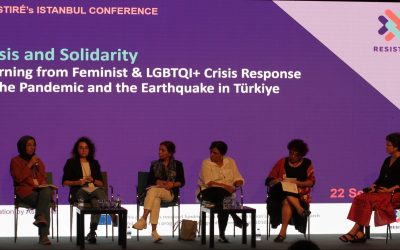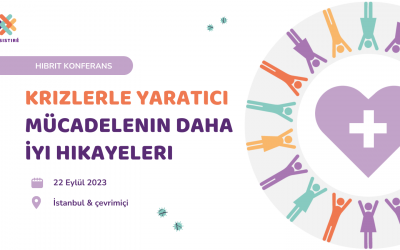Lessons from the pandemic for future research
on health inequalities:
The importance of an intersectional lens
RESISTIRÉ Research Agenda Online Webinar
Watch the recording!
Quickly after being identified as a public health emergency, it was clear that the COVID-19 pandemic affected us not only in terms of infections and deaths, but it also impacted many other health-related aspects of our lives.
With the last of the Research Agenda webinar series, RESISTIRÉ invites experts to reflect on some of the knowledge gaps in the field of health inequalities identified during the research done in the past two years. Aware that the project cannot cover all the research needs linked to the impact of the pandemic and associated policies on health inequalities, we aim to bring these research gaps to the attention of other stakeholders who are interested in bringing them forward. In particular, we call for more intersectional research on this topic, as well as further investigation of the long-term impacts on health and health inequalities.
Outline
The webinar starts with a presentation of RESISTIRÉ’s research agenda on health inequalities and on intersectional data collection and analysis – outlining the identified knowledge gaps and research questions related to these topics – followed by each of the panellists’ reactions, a discussion moderated by our partner Sciensano and questions from the audience.
Invited panellists
- Aziz Naji, coordinator of the Unit “défis fédéraux de société” and of the Programme Drogues of BELSPO
- Raffaella Bucciardini, Director of the Health Equity Unit at the Istituto Superiore di Sanità (Italian National Institute of Health)
RESISTIRE’s outputs related to health inequalities
RESISTIRE has identified knowledge gaps and research questions on health inequalities in its Agenda for Future Research from its 3rd research cycle and on intersectional data collection and analysis in its Agenda for Future Research from 2nd cycle. These findings allow us to support further research aimed at improving the development and implementation of crisis-related policies/responses considering their impacts on vulnerable groups and (pre-)existing inequalities, more specifically covering the following domains:
- Long-term and intersectional effects on mental health;
- Unequal access to sexual and reproductive health;
- Access to preventive resources for physical and mental health;
- Institutional support and interconnections between civil societies and professionals;
- Digital literacy and health;
- Gaps in intersectional data and in intersectional analysis
RESISTIRÉ’s factsheet on the need for “More Intersectional data” also provides recommendations on how this can be applied to the field of health inequalities.



